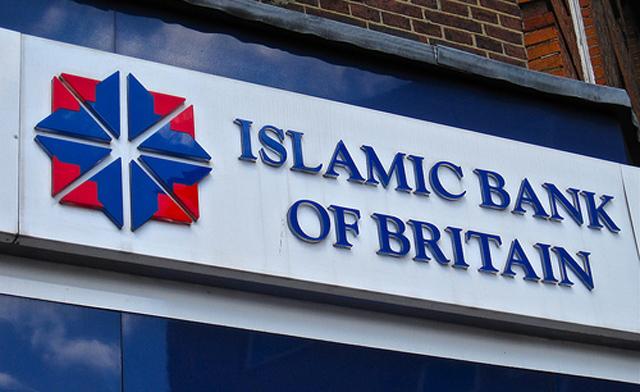UK: Sharia-Compliant Student Loans?
The British government has launched a public consultation on whether or not to introduce student loans that are compliant with Islamic Sharia law, which forbids loans that involve the payment of interest.
UK: Sharia-Compliant Student Loans?
Soeren Kern | Gatestone Institute | April 28, 2014
The British government has launched a public consultation on whether or not to introduce student loans that are compliant with Islamic Sharia law, which forbids loans that involve the payment of interest.
The move to seek input from the general public comes amid rising complaints from Muslim students, who argue that the existing interest-based student loan system is unfairly forcing them to choose between getting a university degree and staying true to their religious beliefs.
The government says the establishment of a scheme that would enable Muslim students to finance their degrees in a way that complies with Islamic principles would “ensure that anyone with the ability and desire can go to university.”
Critics counter that the dispute over interest-bearing student loans follows stepped-up demands for Sharia-compliant banking and insurance as well as credit cards, mortgages and pension funds, which—taken together—are contributing to the establishment of parallel Islamic financial and legal systems in Britain.
The consultation—formally known as the Consultation on a Sharia-Compliant Alternative Finance Product—seeks to determine whether an “alternative finance system that is not interest based” would be acceptable to “anyone who might be deterred from the conventional system.”
The alternative financial model involves a mutual fund pooling scheme (known as takaful in Arabic), whereby prospective students would withdraw money from a Sharia-compliant fund to pay for school. Upon graduation they would make a series of repayments back into the same fund to help pay for the education of other students who come along after them.
In an effort to address concerns that Muslim students would end up paying less than non-Muslims, the government says the fund would be set up in such a way so as to ensure that repayments are made at the same rate as students who take out traditional student loans.
The government’s consultation document says “this model of student finance product was proposed and developed by experts in Islamic finance and has been approved by the Sharia Supervisory Committee of the Islamic Bank of Britain.” It continues:
The model’s underlying principle is one of communal interest and transparent sharing of benefit and obligation, with the repayments of students participating in the fund being used to provide finance to future students who select to join the fund. This ensures that all members of the fund benefit equally from it.
Students participating in the fund would not be borrowing money and paying it back with interest to a third party, which would not be compliant with Sharia law. Instead, the Takaful fund will be established with an initial amount of money that can be donated to the fund or on the basis of Qard Hasan (interest-free loan) and based on a concept of mutual participation and guarantee.
Students will obtain finance from the fund by applying in a similar manner to the conventional loan. The contract will be based upon a unilateral promise guaranteeing that they will repay a Takaful contribution—which is perceived as a charitable contribution from a Sharia perspective for the benefit of the members of the fund. Monies will be released once the contract is signed. Repayment will be made to the fund once they are in employment and earning above the repayment threshold, which would be set at the same level as for traditional student loans.
The consultation—which was unveiled on April 3 and will run until June 12—is in response to pressure from several Muslim lobbying groups who argue that sweeping government reforms to higher education that came into effect in September 2012 are discriminatory against Muslim students.
The reforms—aimed at improving the financial sustainability of the British university system by shifting the financial burden from taxpayers to graduates—tripled the cap on tuition fees to £9,000 ($15,000; €11,000). The new system also requires graduates who earn above £21,000 ($35,000) to pay interest on student loans of up to 3 percent above inflation.
The London-based Federation of Student Islamic Societies (FOSIS) says the requirement to pay interest on student loans is unacceptable for the estimated 115,000 Muslim university students in Britain.
In an interview with The Independent, a FOSIS spokesman said: “Under Islamic law interest is seen as something that is prohibited. Previously, the interest rate was at the market rate of inflation. The problem now is that the interest is above the market rate. Because the rate of interest is above the rate of inflation, it is quite blatant usury.”
FOSIS says it knows of many Muslim students have who decided against going to university because of the new system of student loan repayments.
Another group called First Ethical Charitable Trust has launched an advocacy campaign— “Lobbying for a Halal Alternative to Student Loans”—aimed at pressuring the government to introduce Sharia-compliant student loans. The group’s website states:
In our view, there are thousands of Muslim students, each and every year, who are effectively being denied access to a university education because of the current interest based system of student loans.
Given Islam strictly prohibits both the paying and receiving of interest, many Muslim students face a conflict between funding their university course through taking a government backed interest-bearing loan and practicing their faith. As a result, thousands choose to forgo the massive benefits a university education can confer.
Denying these principled young people access to university is an incredibly short sighted policy which will condemn tens of thousands of practicing Muslims to permanently lower career and life opportunities, hence storing up social cohesion and equality issues for decades to come.
The group says it welcomes the government’s “promising, yet long overdue step” but complains that “it will take 3-4 years before an alternative model becomes a reality, not only because of the need to pass legislation, but also because they need to then carry out a feasibility study, and properly test an alternative model. We think this is way too long and will leave many Muslim students stranded in the interim.”
Others complain the government is creating a scheme that is only superficially avoiding interest and thus is not actually Sharia-compliant.
Sheikh Suhaib Hasan, a Muslim hardliner who runs the UK Islamic Sharia Council, is quoted by The Independent as saying: “By limiting the repayments to a benchmark similar to that of conventional bank interest rates, Sharia-compliant schemes I think are nothing but a smokescreen through which a prohibited matter turns into a permitted one, so it’s better to leave it as it is.”
Meanwhile, young Muslims interviewed by The Guardian are indifferent to the government’s initiative and say they do not see the point in Sharia-compliant student loans.
Critics say the controversy over student loans is just the latest example of how the British financial and legal systems are being steadily transformed to comply with Sharia law.
In March 2014, it emerged that Islamic law is to be effectively enshrined in the British legal system for the first time under guidelines to help lawyers draft Sharia-compliant wills and estate planning documents.
Ground-breaking guidelines approved by the Law Society—the main professional association representing and governing the legal profession in England and Wales—provide details on how British lawyers should draft inheritance documents in order to comply with Islamic rules, which deny women an equal share of inheritances and exclude non-Muslims altogether.
The documents, which would be recognized by British courts, prevent children born out of wedlock—and even those who have been adopted—from being counted as legitimate heirs. In addition, anyone married in a civil ceremony or in a church could be excluded from inheritance under Sharia law, which recognizes only Muslim weddings for inheritance purposes.
Paragraph 3.6 of the guidelines recommends that some wills include a declaration of faith in Allah which would be drafted at a local mosque, and Paragraph 5.2 hands responsibility for drawing up some papers to Sharia courts. Paragraph 2.3 of the guidelines suggests that Sharia law could overrule British law in inheritance disputes.
In April 2013, a documentary secretly filmed inside several of the 85 Islamic Sharia Law courts operating in Britain exposed the systematic discrimination that many women are suffering at the hands of Muslim jurists.
The documentary—Secrets of Britain’s Sharia Courts—was filmed by the British Broadcasting Corporation and proved what had long been suspected: that Sharia courts, which operate in mosques and houses across Britain, routinely issue rulings on domestic and marital issues according to Sharia law that are at odds with British law.
In 2012, the British government began offering Muslim workers a Sharia-compliant pension fund in the public sector. A new government agency, the National Employment Savings Trust (NEST), will give Muslims who do not already have a company pension the option of investing in the HSBC Life Amanah Pension Fund, a Sharia-compliant pension scheme. The initial target market comprises some 200,000 Muslims in Britain.
In June 2011, Pointon York, an independent financial services company based in Leicestershire, announced that it would begin offering four Sharia-compliant Self-Invested Personal Pensions (SIPP) products that comply with Islamic law.
Pointon York was the first specialist SIPP provider to receive Sharia-compliant accreditation by the Islamic Bank of Britain (IBB), which has pioneered Islamic retail banking in the United Kingdom. The IBB will supervise the entire life-cycle of Pointon York’s pension funds to ensure full compliance with Sharia legal principles.
Muslim families in Britain can already acquire Sharia-compliant baby bonds under the British government’s Child Trust Fund scheme. In 2008, Britain’s Financial Services Authority (FSA) authorized the establishment of the country’s first Islamic insurance company as well as the country’s first Sharia MasterCard, called the Cordoba Gold MasterCard.
In 2009, a report titled “Sharia Law or One Law for All?” found that scores of unofficial tribunals and councils regularly apply Islamic law to resolve domestic, marital and business disputes, many operating in mosques. The report warned of a “creeping” acceptance of Sharia principles in British law.
Soeren Kern is a Senior Fellow at the New York-based Gatestone Institute. He is also Senior Fellow for European Politics at the Madrid-based Grupo de Estudios Estratégicos / Strategic Studies Group. Follow him on Facebook and on Twitter.
Link to Original Article: http://www.gatestoneinstitute.org/4287/sharia-compliant-student-loans





